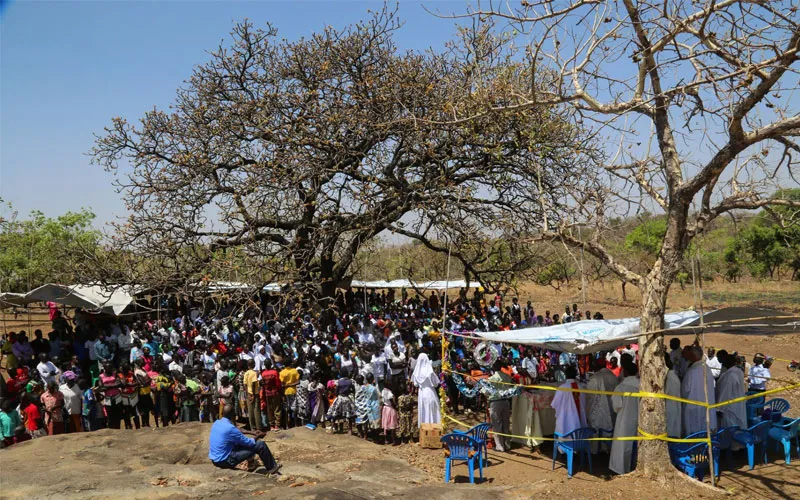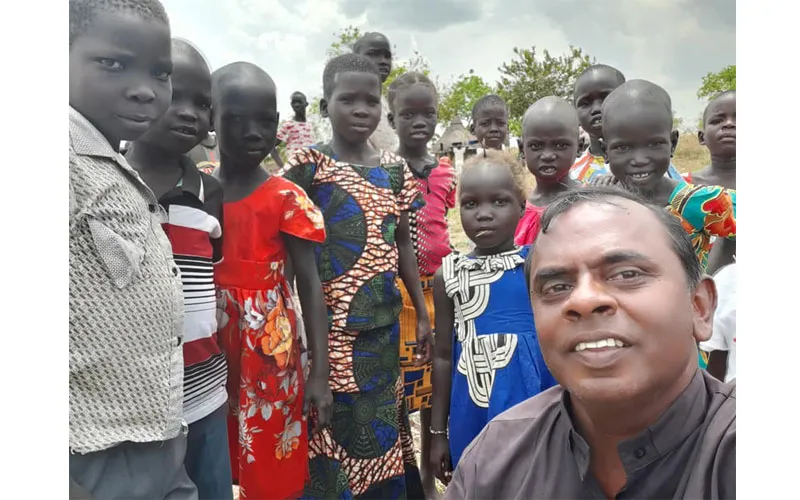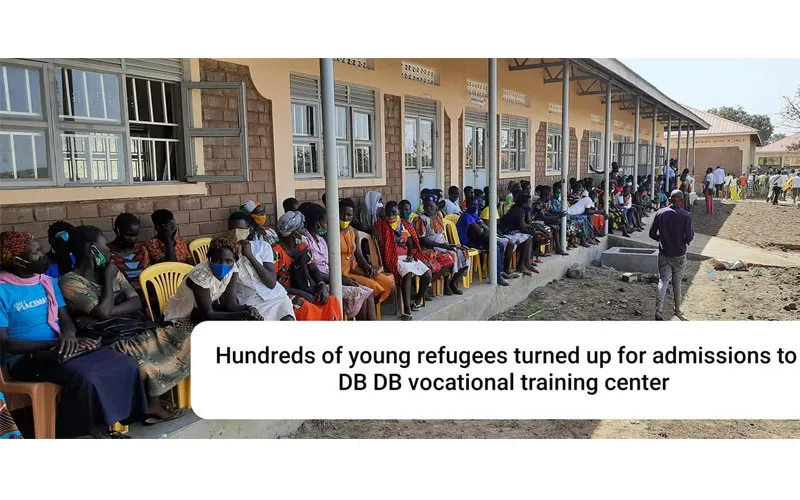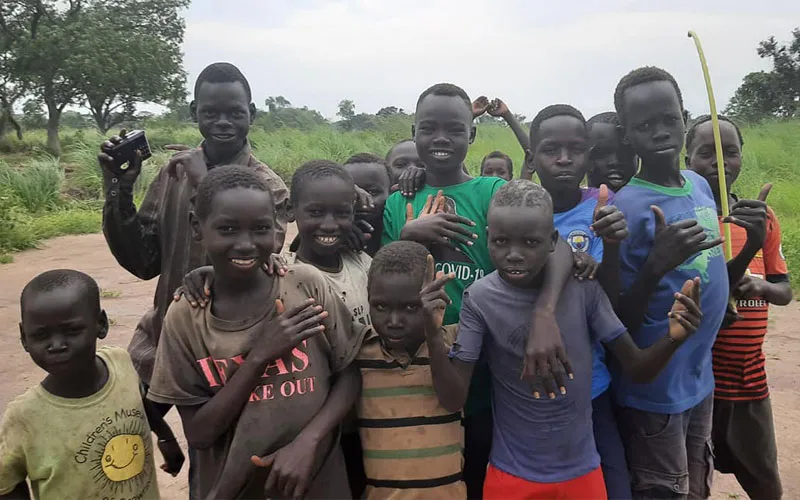Palabek houses about 56,000 refugees from South Sudan who fled their country due to insecurity, lack of food, and other basic facilities.
Uganda also hosts thousands of refugees from Eritrea, Ethiopia, Rwanda, Burundi, Democratic Republic of Congo (DRC) “and a small number of refugees from other countries,” according to Fr. Arasu.
In his attempt to explain why Uganda is considered the most hospitable country in the region, the missionary Cleric who has been in East Africa for over 30 years says, “Though many political explanations are given to the influx of thousands of refugees, we cannot forget the hospitality of ordinary Ugandans who have given lands to the refugees and share the little they have. A big credit goes to them.”
He adds, “Unlike many other refugee hosting countries, in Uganda, the host communities live side by side and share the little resources. This is unique in the world.”
The challenges of refugees are many, ranging from limited exposure to resources and uncertainties about when they will ever go back to their home countries, Fr. Arasu observes.
(Story continues below)

“No one knows when these refugees are returning to their homeland,” he says, and explains, “Many of them have been refugees in Uganda two or three times in their life.”
Fr. Arasu came to Africa when he was in his twenties and has served in Uganda for over two decades, a period during which he has learnt the culture of the East African country.
He first came to Africa from native country, India, in November 1990 for his pastoral work in Tanzania. He recalls the excitement following his trip to Africa, saying, “I was proud to be a missionary at the age of 21.”
He had joined the Seminary at a tender age of 13, with a burning desire to become a missionary and to serve the Church in the example of the saints of the Catholic Church he grew up admiring at an ancient mission in southern Tamil Nadu in India called Kamanayakanpatty.
The mission, which is now a leading parish in India’s Palayamkottai Diocese within the Ecclesiastical Province of Madurai, is close to 500 years old.
“The Jesuit missionaries who lived in this mission including martyr St. John de Britto, linguists Fr. Roberto Nobili and Fr. Joseph Beschi, and others continued to be great inspiration to me,” Fr. Arasu tells ACI Africa.

Making reference to his family, which is devoted to the Catholic Church, he adds, “I trace my vocation to several uncles and aunts who were Catholic Priests and Nuns, including a Bishop who inspired me to follow in their footsteps. I also wanted to be like them.”
He enrolled for a teacher training program in India after his pastoral experience before he proceeded for theology at Tangaza University College (TUC), the Nairobi-based Constituent College of the Catholic University of Eastern Africa (CUEA) that is jointly-owned by 22 Religious Orders.
He was ordained a Priest in May 1998 and assigned to school ministry in Uganda.
“Now my heart and mind is filled with the Church in East Africa and the young people who are the vibrant members of this great church,” he says.
In his decades of ministry among the people of God in Uganda, Fr. Arasu has especially taken a deeper interest in the country’s education system and industry requirements.
He understands that equipping young people with skills for the industry is their ticket out of poverty and the vulnerability in refugee camps.

“Offering skills training is a favorite ministry of the Salesians,” the SDB Cleric says, adding that members of the St. Don Bosco-founded Congregation have at least 103 Vocational and Technical Training Center (VTCs) in 45 countries of Africa.
The technical training ministry, Fr. Arasu shares, is even more relevant to the refugees as they are looking for opportunity to work and find meaning in their lives.
“It is good for them to learn a skill within a year and be self-reliant,” he says, and adds, “In Palabek, we have trained at least 800 young people in two years and we are happy to see them working and being self-employed. This particularly helps the young women to be self-assertive and earn a living amidst many numerous trails and abuses.”
He says that 60 percent of refugees at Palabek Refugee camp are young people, underscoring the need for the younger population to be equipped with skills that match industry needs.
He says that at Don Bosco Vocational Training Center (DB VTC), training is short and hands-on geared toward production and income generation.
Fr. Arasu expresses a desire to have as many Church organizations as possible coming forward to support the refugees’ project in Uganda.
“It is my prayer that the Catholic hierarchy and the numerous Religious Congregations present in Uganda make provision for the refugee ministry in Uganda, as the country hosts nearly 1.5 million refugees,” he says.
The SDB member goes on to explain that a majority of these refugees are Catholics from South Sudan and DRC.

His inspiration in his ministry among refugees in Uganda, he says, is the call of Pope Francis “to reach out to the migrants” as well as the special emphasis given by the Salesian society.
The Cleric underscores the need to focus attention on the needs of the refugees saying, “Despite many challenges, this ministry is urgent and meaningful. It is serving the most downtrodden, neglected and poorest of the poor.”
Agnes Aineah is a Kenyan journalist with a background in digital and newspaper reporting. She holds a Master of Arts in Digital Journalism from the Aga Khan University, Graduate School of Media and Communications and a Bachelor's Degree in Linguistics, Media and Communications from Kenya's Moi University. Agnes currently serves as a journalist for ACI Africa.














